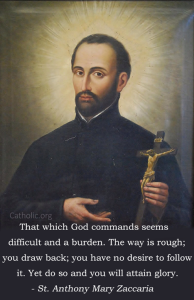
St. Anthony Mary Zaccaria (1502-1539)
(CNA) Born into an Italian family of nobility in Cremona, Anthony’s father died shortly after his birth, his mother Antonietta though only 18 yrs old, chose not to remarry, preferring instead to devote herself to works of charity and Anothny’s education.
Antonietta’s son, took after her in devotion to God and generosity towards the poor. As a youth, Anthony studied Latin and Greek and later was sent to Pavia to study Philosophy subsequently studying Medicine and earning his degree by the age of 22 and then returned to Cremona.
Despite Anthony’s noble background and secular education, the young Physician had no interest in marrying or accumulating wealth. While caring for the physical infirmities of his patients, Anthony would also encourage that they find spiritual healing through repentance and the sacraments.
Anthony began teaching Catechism to children and went on to participate in the religious formation of young adults subsequently he decided to withdraw from medicine altogether and with the encouragement of his spiritual director, he went on to study for the Priesthood.
Ordained by the age of 26 now Fr. Anthony Zaccaria, is said to have experienced a miraculous occurrence during the Celebration of his first Mass as a young Priest–Being surrounded by a supernatural light and a multitude of Angels during the consecration of the Eucharist. — Contemporary witnesses marveled at the event and testified to it after Fr. Anthony’s death.
Church life in Cremona suffered a decline in the late 15th and early 16th centuries, Fr, Anthony encountered a widespread ignorance and religious indifference among the Laity, while many of the clergy were either weak or corrupt. — In these dire circumstances, Fr. Anthony devoted his life to proclaiming the truth of the Gospel of Jesus Christ both clearly and charitably. Within the span of just two years, his eloquent preaching and tireless pastoral care is said to have changed the moral character of the city dramatically.
In 1530 Fr. Anthony moved to Milan, where a similar spirit of corruption and religious neglect prevailed, there he decided to form a priestly society, the ‘Clerics Regular of St. Paul’ — Inspired by the Apostle’s life and writings, the new Order was founded on a vision of humility, asceticism, poverty and the ministry of preaching. Subsequently Fr. Anthony also founded a Women’s religious Order, ‘The Angelic Sisters of St. Paul” an organization the Laity of St. Paul, geared toward the sanctification of those outside the priesthood and religious life; Later Fr. Anthony pioneered the ’40 Hours’ of devotion, involving continuous prayer before the Blessed Sacrament.
Less than 10 years after moving to Milan, Fr. Anthony became seriously ill, returning to his mother’s home in Cremona — The founder of the ‘Clerics Regular of St Paul’ subsequently died on this date in 1539 during the liturgical octave of the Feast of Saint’s Peter & Paul (Feast Day: 29th June) at the age of just 36 Fr. Anthony the young Physician later Ordained a Priest, was buried at St. Paul’s Convent of the Angelics in Milan.
In 2001 Cardinal Joseph Ratzinger the future Pope Emeritus Benedict XVI wrote the preface for a book on St. Anthony Mary Zaccaria ‘Igniting the Flame of Faith: St. Anthony Mary Zaccaria’ praising him as “one of the great figures of Catholic reform in the 1500s” who was involved “in the renewal of Christian life in an era of profound crisis.”
Fr. Anthony Zaccaria was Beatified in 1849 by Pope Pius IX and Canonized in 1887 by Pope Leo XIII
More here from Franciscan Media
Related: The Reformer: St. Anthony Zaccaria by Andrea Erba –Amazon
For Today’s Holy Scripture Readings for the Memorial of St. Anthony Mary Zaccaria, Visit: -USCCB
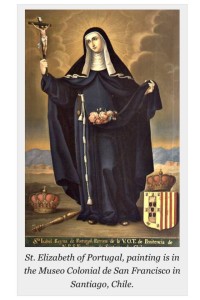
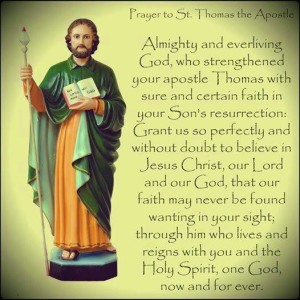
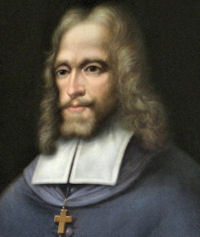
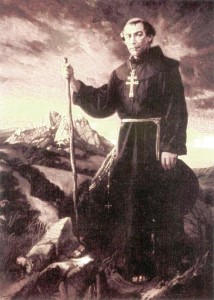
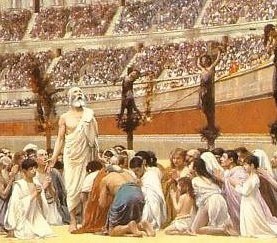
 Feasts of Saint’s Peter & Paul –Image Courtesy: Vatican
Feasts of Saint’s Peter & Paul –Image Courtesy: Vatican 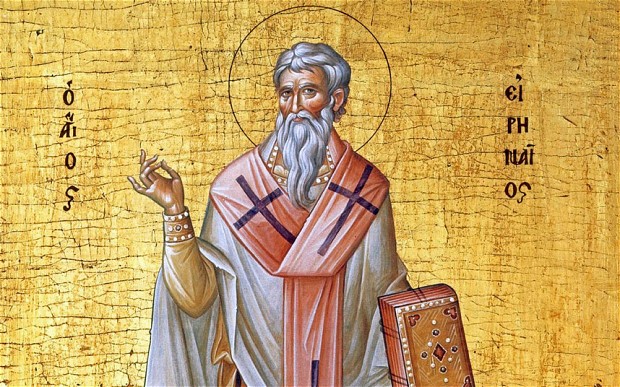 St. Irenaeus “The Glory of God is Man Fully Alive” –Image:
St. Irenaeus “The Glory of God is Man Fully Alive” –Image: 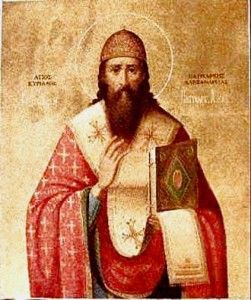
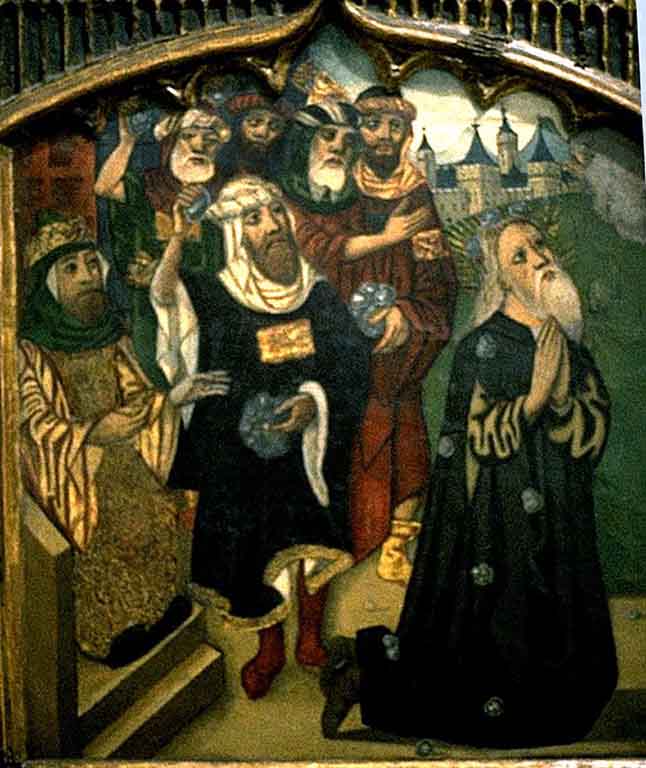 Because of Catholics Like Raymond Lull (1235-1315) –Patheos.com
Because of Catholics Like Raymond Lull (1235-1315) –Patheos.com